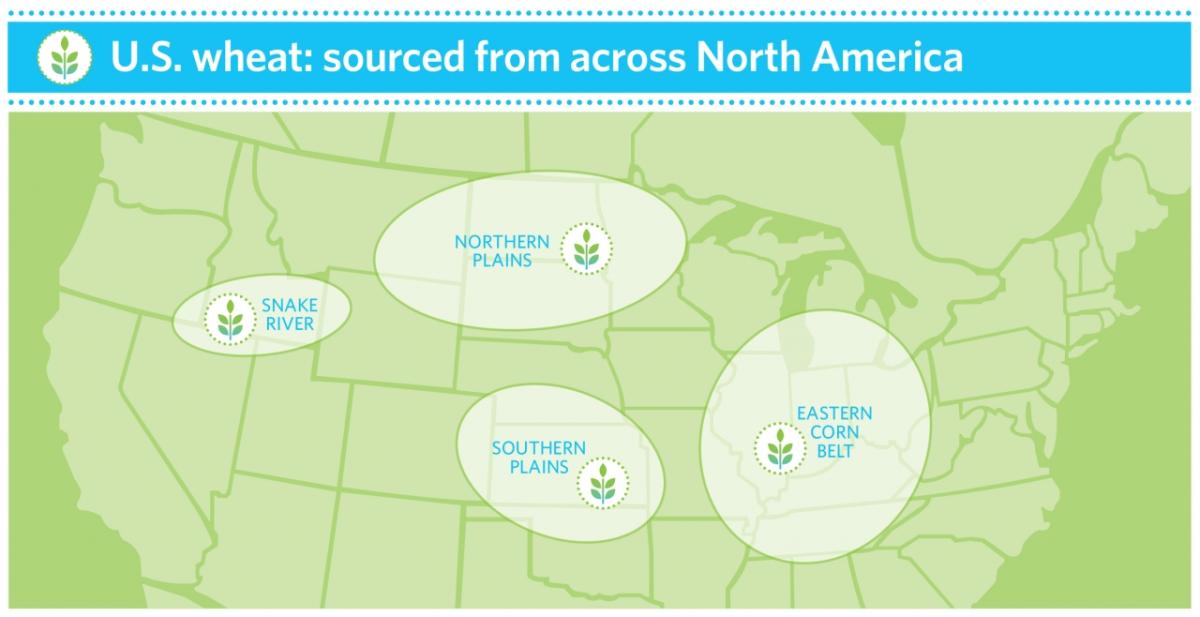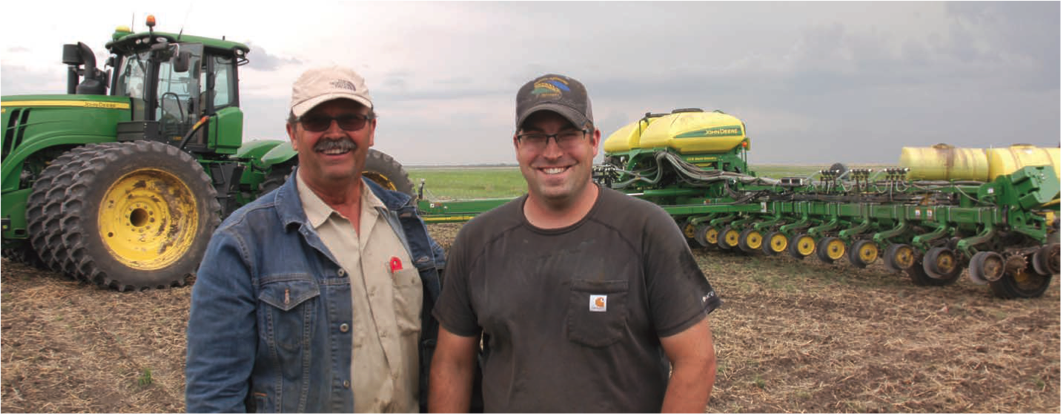Our Progress to Sustainably Source Wheat
Our progress to sustainably source wheat
Editor’s note: This is the second story in a series focusing on our commitment to sustainably source our top ten priority ingredients used in General Mills products. Read the first piece, which highlights our progress with oats.
Wheat is an important ingredient for General Mills. We use it in everything from cereal to pizza crust, cake mixes, cinnamon rolls and more. Making sure that the wheat we source is grown sustainably is a priority for us.
Nearly four years ago, we made a commitment to sustainably source our top ten priority ingredients by 2020. Right now, we are 61 percent of the way to 100 percent sustainably sourced wheat. We are helping to reduce the environmental impact of agriculture by working with our suppliers and the farmers who grow wheat and other crops to promote sustainable outcomes.
While some of our engagements promote specific sustainable practices, they are often about using data to continuously improve resource efficiency so farmers can grow more with less.
We want to see year-on-year improvement on resource utilization. Over time, we expect farmers will grow more with less and we measure that. We use continuous improvement processes on farms to measure sustainability.
Our commitment to sustainable sourcing is driven by our company’s pursuit to treat the world with care. It’s also good business. With healthy soil and clean water, farmers can produce an abundant supply of crops to feed our global population now and in the future.
Farmers are the key. Working with our suppliers, we connect with farmers who track the impact of sustainable practices on their land. With the help of our connected data partners, including Agrible and Syngenta, farmers can measure changes in multiple environmental indicators for water, soil, energy and greenhouse gas (GHG) emissions so they only use what the crop needs.
“We know consumers are looking at labels and want to know more about where their food comes from and how it is grown. We want to explain how we are doing things sustainably on our farm, and show that we are taking care of our land.” — Jeff Oberholtzer, North Dakota farmer
Our journey began in 2010 working with wheat farmers in Idaho and has expanded to include more than 80 farmers across four regions in the U.S. They are tracking and measuring field level data and sustainability practices on 200,000 acres of farmland.
We use specific types of wheat in our products. The type of wheat grown in each region varies based on local climate. For example:
- Hard spring wheat from the Northern Plains region is used in Totino’s party pizzas
- Soft red winter wheat from the Eastern Corn Belt region is used in Betty Crocker cake mixes
- Hard red winter wheat from the Southern Plains region is used in Pillsbury Crescent rolls
- Soft white wheat from the Snake River region is used in Cinnamon Toast Crunch
We continue to recruit additional farmers to help us scale our efforts across the U.S. Our goal is to have 25 percent of the acres (from which are accountable for buying wheat) measuring continuous improvement processes by the year 2020.
Enthusiasm in the program is building as farmers see the impact of sustainable practices on their farms and the benefits of a broader supplier/customer partnership to tell the story of sustainable agriculture.
“I appreciate the insights from the program to help increase productivity. While profitability is a major reason for participating, the other farmers and I are trying to farm to the best of our ability and have a positive effect on the environment. We grew up where we’re farming. Nature and the ground we farm means everything to us as agriculturists.” – Chad Rubbelke, North Dakota farmer
Farmers are seeing results. In the Northern Plains, for example, farmers used no-till practices on 95 percent of wheat fields in the program during the 2017 growing season. Tilling – the process of turning over the soil to prepare the field for planting – releases carbon into the atmosphere (contributing to climate change) and causes soil erosion.
Over time, farmers that use no-till farming practices will see a 70 percent reduction in erosion compared to their neighbors. They also lower their fuel consumption, which cuts cultivation costs and GHG emissions from tractors and other farm equipment.
The partnership is having a big impact. Participating farmers are making calculated changes to improve sustainability on their farms.
Click here to learn more about sustainable sourcing. And learn more about General Mills in our 2017 Global Responsibility Report.
Have an idea for a story you’d like to see on “A Taste of General Mills”? Please let us know via email at contact.blog@genmills.com.
John Wiebold is the vice president of Sustainable Sourcing at General Mills, based in Minneapolis. He is accountable for delivering Sourcing’s commitments to sustainably source the company’s 10 priority ingredients by the year 2020. He began his career at General Mills in 2000.



